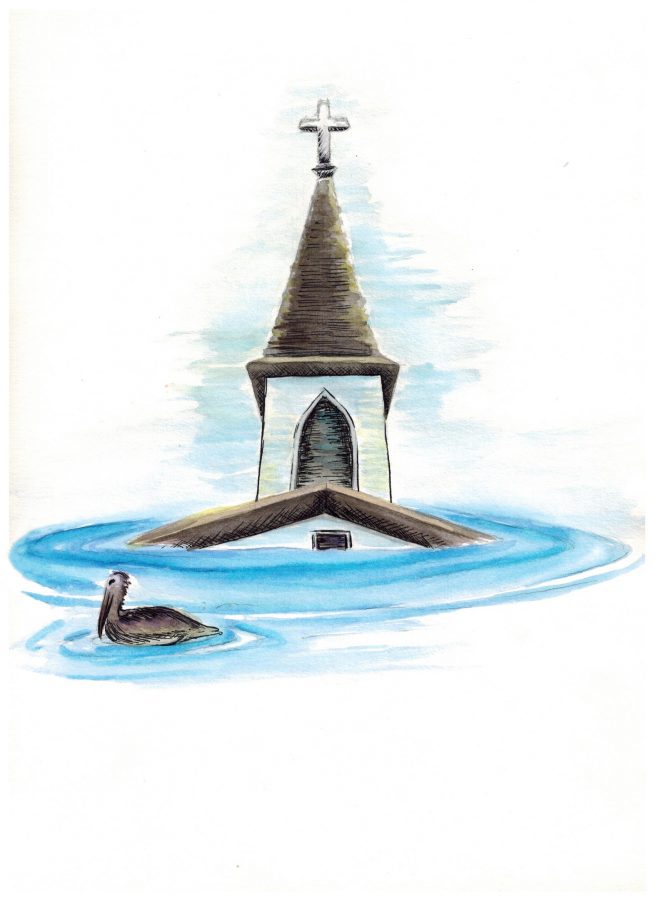Hurricane Harvey flooded Harvest Family Church, Hi-Way Tabernacle and Rockport First Assembly of God. After the storm, displaced Texans found shelter at places like Hi-Way Tabernacle, which distributed 8,000 Federal Emergency Management Agency emergency meals. But when they sought to rebuild, the three churches found that they were ineligible for FEMA disaster relief funds despite their contributions to the community.
As the waters receded and Texans began rebuilding their lives, injustice reared its head. Three churches were refused disaster relief funding on account of their religion. Therefore, the churches proceeded to sue FEMA.
Churches whose primary social services are “religious” are ineligible for FEMA’s nonprofit disaster relief funds. According to FEMA’s “Public Assistance Program and Policy Guide,” nonprofits whose chief services are “religious activities, such as worship, proselytizing, religious instruction,or fundraising activities that benefit a religious institution and not the community at large,” cannot access funds available to their secular counterparts.
What do churches do, if not “religious activities?” Strip a church of its religion, turn it into a secular institution, and it will be eligible for FEMA’s disaster relief. But it will no longer be a church. FEMA’s current policy explicitly discriminates against religion. Consequently, it must be abolished. Sure, religious institutions cannot be prioritized over secular institutions, but that is not what is happening.
According to attorney Diana Verm of The Becket Fund for Religious Liberty and legal counsel for the churches, churches deserve equal funding. “The program at issue in the case is grants that are going exclusively to nonprofits,” Verm said. “What we are talking about here is clearing away debris, it’s not buying Bibles to fill the pews.”
FEMA has two viable paths before it. First, the ideal path: FEMA can exhort the president to redefine a “private nonprofit facility.” The president has indicated that he supports amending FEMA’s policy. There is a second path: a costly legal battle between the churches and FEMA. If FEMA chooses the latter, they face perilous odds.
After the Supreme Court’s June 2017 verdict in Trinity Lutheran v. Comer, FEMA’s policy is on extremely shaky legal ground. Chief Justice John Roberts, speaking for the majority, wrote that Missouri unjustly discriminated against a religious institution “by denying the Church an otherwise available public benefit on account of its religious status.”
Is that not what FEMA is doing? Are they not denying an otherwise available public benefit on account of religious status? The policy stands in opposition Trinity Lutheran; it stands in opposition to the Constitution.
The separation between church and state is paramount amongst Americans’ cherished walls. However, the wall of separation has grown so tall that churches are paying for it. FEMA’s prohibition against disaster relief for churches is religious discrimination. In the context of Trinity Lutheran, it appears to be blatantly unconstitutional. It must go. The government must treat American institutions equally no matter their religion. FEMA treats them differently because of their religion.
Howell is a history sophomore from Dallas.





















